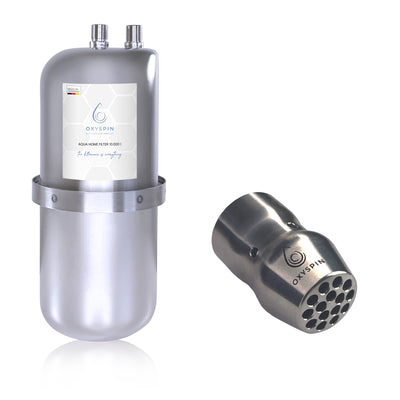Drinking relieves anxiety

Lack of water increases stress
At any time of the year - not just in summer - it is important to drink enough and regularly. Too little fluid can lead to headaches and circulatory problems. Symptoms such as dizziness, an altered effect of a medication, constipation or increased susceptibility to infections can also be the result of dehydration. Studies also point to a link between long-term lack of water (dehydration) and high blood pressure. What is less well known, however, is that dehydration can also promote stress. Our body is approximately 67% water, while the brain is 85% water. Water is essential for brain functions and, because of its good electrical conductivity, optimizes the functioning of the entire nervous system. Dehydration impairs the ability to think and concentrate and thus increases stress. It is therefore advisable to ensure a constantly high water balance by drinking regularly. Unfortunately, especially in stressful situations, we often forget to drink enough water.
One in three people forget to drink when they are stressed
Many people generally find it difficult to drink water regularly and in sufficient quantities. But with a little good will it is not that difficult to get into the habit of healthy drinking.
However, things are often different at work: people drink too little water, especially in stressful situations. According to a Forsa survey commissioned by Techniker Krankenkasse, one in three Germans forgets to drink when they are stressed, and more than four out of ten employees forget to drink while at work. But right now a balanced water balance is particularly important, because this not only maintains our physical but also mental performance. In addition to the liquid that is so important for the ability to think and concentration, the body and brain also lack important minerals such as magnesium and phosphorus. Headaches, difficulty concentrating and a decrease in memory can be the result.
This can be avoided by keeping a bottle of water handy at work and making it a habit to drink regularly. If you do this over a longer period of time, the body gets used to it and demands fluids of its own accord. This saves you unnecessary stress and keeps a clear head even in hectic times. In addition, the time to pour yourself a glass of water and drink it also helps to calm down a bit - a little break from work stress, but especially if we consciously treat ourselves to it, very effective - and much healthier than the previously popular one cigarette break. Employers can encourage healthy drinking by providing water free of charge. This not only serves to prevent stress and maintain performance, but is also an expression of the company's appreciation of the employees.
Drinking: what, how and how much?
Most of the fluid intake should come from water or unsweetened tea, but other beverages are also acceptable. Contrary to popular belief, coffee does not remove water from the body, but rather contributes to the fluid balance. However, coffee is not recommended as a thirst quencher because of its stimulating effect on the heart and circulation. Excessive consumption can also increase stress symptoms. Pure juices or sugary lemonades are also allowed, but many readily available carbohydrates increase the risk of poor concentration and memory due to hypoglycaemia as a result of hormonal counter-regulation. If you don't want to do without taste completely, you are better off with an apple spritzer. The drink, which is so popular among athletes, provides the carbohydrates required by the brain in appropriate quantities, and the trace element boron it contains is said to have a positive effect on mental performance.
Adults should drink around 1.5 liters a day, or even up to three liters in summer or during heavy physical exertion. However, not only the amount of liquid consumed is decisive for well-being and performance, but also when and how. If you wait to drink until you feel thirsty, you are often acting too late: thirst only occurs when the body already has a water deficit. A dry mouth signals an acute lack of fluids: the body has started to no longer moisturize the mucous membranes.
Anyone who drinks quickly and in large quantities will soon have to go to the toilet because the body does not have enough time to absorb the liquid. Only by regularly drinking small amounts can the water be deposited on the mucous membranes and thus be absorbed.
drink away stress
A balanced water balance not only prevents stress and loss of performance, but is also important for processing stress reactions. Water as a solvent, transport and excretion medium ensures the breakdown of stress hormones when the stress reaction subsides. The body and nervous system resume their normal processes in a short time.
Under certain conditions, drinking water can even help to reduce acute stress symptoms. Skeptical? Then do the following experiment: If you have the feeling that you are very stressed, stop and try to rate your stress level on a scale from 1 (very low) to 10 (extreme). Now drink about 0.5 liters of water as quickly as possible and wait about 10 seconds until it has distributed itself. Now rate your current stress level on a scale from 1 to 10. You may be surprised at the results of this "instant stress reliever".



